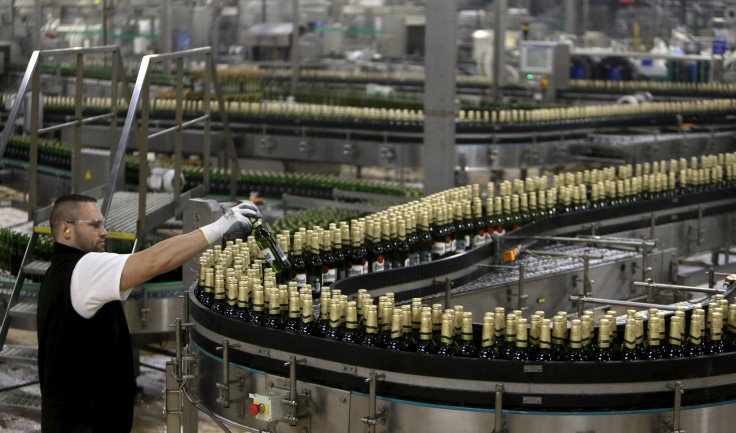Ab InBev, SABMiller To Spin Off Premium Brands To Ease Antitrust Concerns In Europe

Anheuser-Busch InBev, the world’s largest beer brewer by volume, said it will look for buyers for SABMiller Plc’s European beer brands, including Peroni and Grolsch, to address regulatory concerns about their proposed 73.5 billion-pound ($110 billion) merger.
The two companies hope that selling the European assets could help smooth the way for the deal which, if approved, would reportedly create an industry giant with an annual revenue of about $64 billion about a third of worldwide beer sales. Potential buyers include Japan’s Kirin Holdings Co. and Carlsberg A/S, Susquehanna Financial Group analyst Pablo Zuanic reportedly said, in a Nov. 30 note.
“Peroni and Grolsch could fetch $1 billion to $1.2 billion,” Zuanic told Bloomberg, adding: “Divesting Peroni and Grolsch should have minimal effect on the upside.”
Shares of both companies were little changed in the Brussels and London stock exchanges after the announcement. Ab InBev has offered to pay 44 pounds, or about $66, a share in cash for SABMiller.
Ab InBev said it would also seek to sell Meantime Brewing Company, a British craft brewer that SABMiller bought in May. SABMiller has already reached an agreement with Molson Coors Brewing Co to sell off its 58 percent stake in MillerCoors for $12 billion in a bid to win approval from U.S. regulators.
"Like the previously announced disposal of the Miller business to Molson Coors, these steps reflect AB InBev’s pro-active approach to addressing potential regulatory concerns," AB InBev, owner of Budweiser, said in a statement.
Ab InBev could face a $3 billion termination fee if the deal fails to get regulatory approval.
Selling Peroni and Grolsch “would help reduce leverage and doesn’t make the SABMiller acquisition less attractive,” Javier Gonzalez Lastra, an analyst at Berenberg in London, told Bloomberg.
The two beer giants reached an in-principle agreement to merge in October and completed their negotiations last month. The combination would give Ab InBev access to SABMiller’s substantial operations in Africa, and greater dominance in Latin America. The merger is also expected to save the combined entity about $1.4 billion annually in four years after the deal is finalized.
© Copyright IBTimes 2024. All rights reserved.











